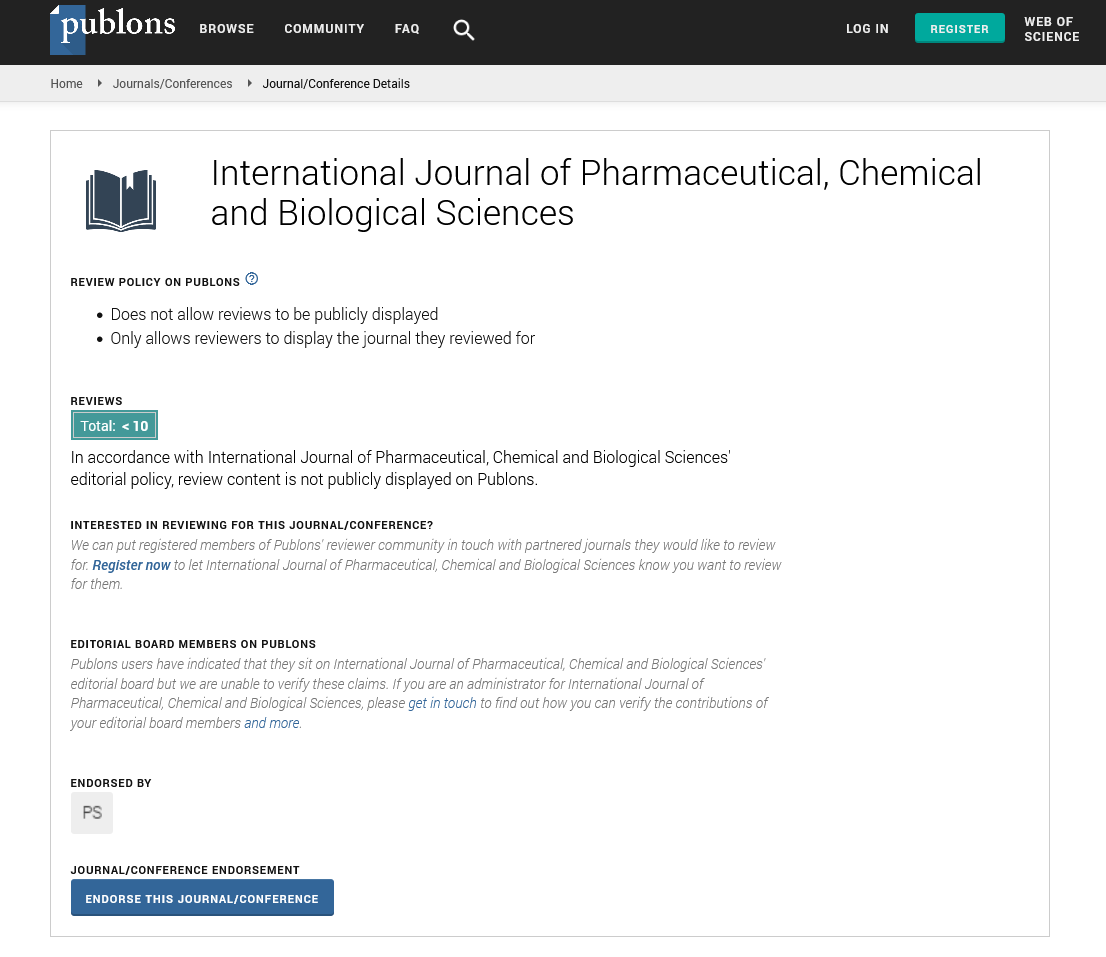Opinion - International Journal of Pharmaceutical, Chemical and Biological Sciences ( 2024) Volume 14, Issue 2
Exploring the Chromosomal Blueprint: The Promise of Cytogenetics in Unraveling Genetic Mysteries
George Taylor*George Taylor, Department of Genetics, Cornell University, USA,
Received: 29-May-2024, Manuscript No. ijpcbs-24-140251; Editor assigned: 31-May-2024, Pre QC No. ijpcbs-24-140251 (PQ); Reviewed: 14-Jun-2024, QC No. ijpcbs-24-140251; Revised: 19-Jun-2024, Manuscript No. ijpcbs-24-140251 (R); Published: 26-Jun-2024, DOI: DOI: 10.36648/2471-9668-14.2.1
Introduction
In the intricate tapestry of life, chromosomes serve as the fundamental blueprint, encoding the genetic information that shapes every aspect of an organism’s biology. Cytogenetics, the study of chromosomes and their role in inheritance and disease, offers a powerful lens through which to decipher the mysteries of genetics and unlock insights into human health and evolution. From unraveling the origins of genetic disorders to guiding personalized medicine, cytogenetics continues to illuminate the complex interplay between genes, chromosomes, and disease. At the heart of cytogenetics lies the analysis of chromosomal structure and function. Through techniques such as karyotyping, Fluorescence In Situ Hybridization (FISH), and Comparative Genomic Hybridization (CGH), researchers can visualize and characterize chromosomal abnormalities with unprecedented precision. These abnormalities, ranging from numerical changes (aneuploidy) to structural rearrangements (translocations, deletions, duplications), can have profound implications for an individual’s health and development. One of the most well-known applications of cytogenetics is in the diagnosis of chromosomal disorders, such as Down syndrome, Turner syndrome, and Klinefelter syndrome.
Description
Cytogenetics plays a crucial role in cancer research and diagnosis. Chromosomal abnormalities are a hallmark of many types of cancer, reflecting the genomic instability and dysregulation of cell division characteristic of malignant cells. By analyzing cancer cells’ karyotypes, researchers can identify chromosomal aberrations that drive tumor initiation, progression, and response to therapy. This knowledge informs the development of targeted therapies and precision medicine approaches tailored to individual patients’ genetic profiles, ushering in a new era of personalized oncology. Furthermore, cytogenetics offers a window into the evolutionary history and diversity of species. By comparing the karyotypes of different organisms, researchers can infer evolutionary relationships, track chromosomal rearrangements over time, and uncover the genetic mechanisms driving speciation and adaptation. This comparative approach sheds light on the genetic basis of biodiversity and provides valuable insights into the origins and evolution of life on Earth. Despite its transformative potential, cytogenetics faces several challenges and limitations. The complexity of chromosomal analysis requires sophisticated laboratory techniques and expertise, making it inaccessible in resource-limited settings. Moreover, interpreting chromosomal abnormalities can be challenging, particularly in cases of complex rearrangements or mosaicisms, necessitating ongoing research and collaboration to improve diagnostic accuracy and clinical utility. Looking ahead, advances in cytogenetics hold promise for revolutionizing our understanding of genetics and disease.
Conclusion
Cytogenetics stands as a cornerstone of modern genetics, providing a powerful toolkit for unraveling the mysteries of the chromosomal blueprint. From diagnosing genetic disorders to elucidating cancer biology and tracing evolutionary history, cytogenetics continues to shape our understanding of the genetic basis of life. As we harness the power of cytogenetics to probe the genome’s secrets, we move closer to realizing the promise of personalized medicine, precision oncology, and a deeper understanding of the genetic tapestry that connects us all.
Acknowledgement
None.Conflict Of Interest
None.

